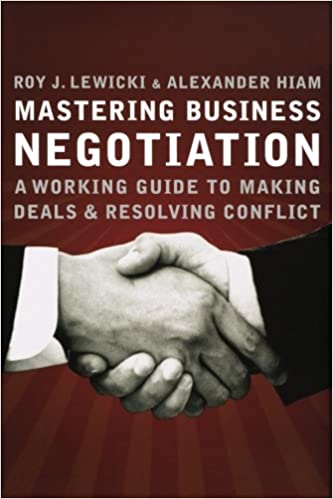“Mastering Business Negotiation” is a well-known book that provides practical advice and strategies for effective negotiation in a business context. The book covers a range of topics, including preparing for negotiations, understanding different negotiation styles, managing emotions and conflict during negotiations, and closing deals. It is a popular resource for business professionals and students seeking to improve their negotiation skills.
Understanding Negotiation Dynamics
Negotiation is an exchange of offers and counteroffers between parties with the goal of reaching a mutually beneficial agreement. It is a dynamic process that involves understanding the interests and positions of each party, building trust, and creating value. Effective negotiation requires careful planning, active listening, and effective communication.
Communicating Effectively
Effective communication is essential in negotiations. This involves active listening, asking open-ended questions, and using language that is clear and concise. It also involves being aware of nonverbal cues and adapting your communication style to the other party.
Closing Deals
Effective negotiators know how to close deals in a way that is mutually beneficial and creates a positive relationship between the parties. This involves summarizing the key points of the agreement, addressing any outstanding issues, and ensuring that both parties are satisfied with the outcome.
Continuing to Learn and Improve
Effective negotiation is a skill that can be learned and improved over time. It requires ongoing learning and practice. This includes seeking feedback, reflecting on your own performance, and continuously improving your negotiation skills.
Building Trust and Rapport
Building trust and rapport is essential in negotiations. This involves being transparent and honest, finding common ground, and understanding the other party’s perspective. It also involves creating a positive atmosphere and maintaining open lines of communication.
Preparing for Negotiations
Effective negotiation requires thorough preparation. This includes identifying your own interests and objectives, as well as those of the other party. You should also anticipate potential objections and prepare counterarguments. Additionally, you should gather information about the other party and their negotiating style.
Creating Value
Effective negotiators create value by identifying and addressing the underlying interests and needs of each party. This involves looking for ways to expand the pie and create win-win solutions. It also involves being creative and flexible in finding solutions that satisfy both parties.
Handling Difficult Situations
Negotiations can be challenging, and difficult situations may arise. Effective negotiators know how to handle these situations. This involves staying focused on the issues at hand, managing emotions, and finding common ground. It also involves being prepared to walk away if necessary.
Understanding Different Negotiation Styles
There are different negotiation styles, and each style has its advantages and disadvantages. For example, a competitive style may be effective in some situations, but it can damage relationships over time. A collaborative style, on the other hand, can build trust and create value, but it may take longer to reach an agreement.
Managing Emotions and Conflict During Negotiations
Negotiations can be emotionally charged, and conflicts may arise. Effective negotiators know how to manage their emotions and those of the other party. This involves active listening, acknowledging the other party’s perspective, and staying calm under pressure. It also involves identifying common ground and finding creative solutions to address differences.


Member discussion: